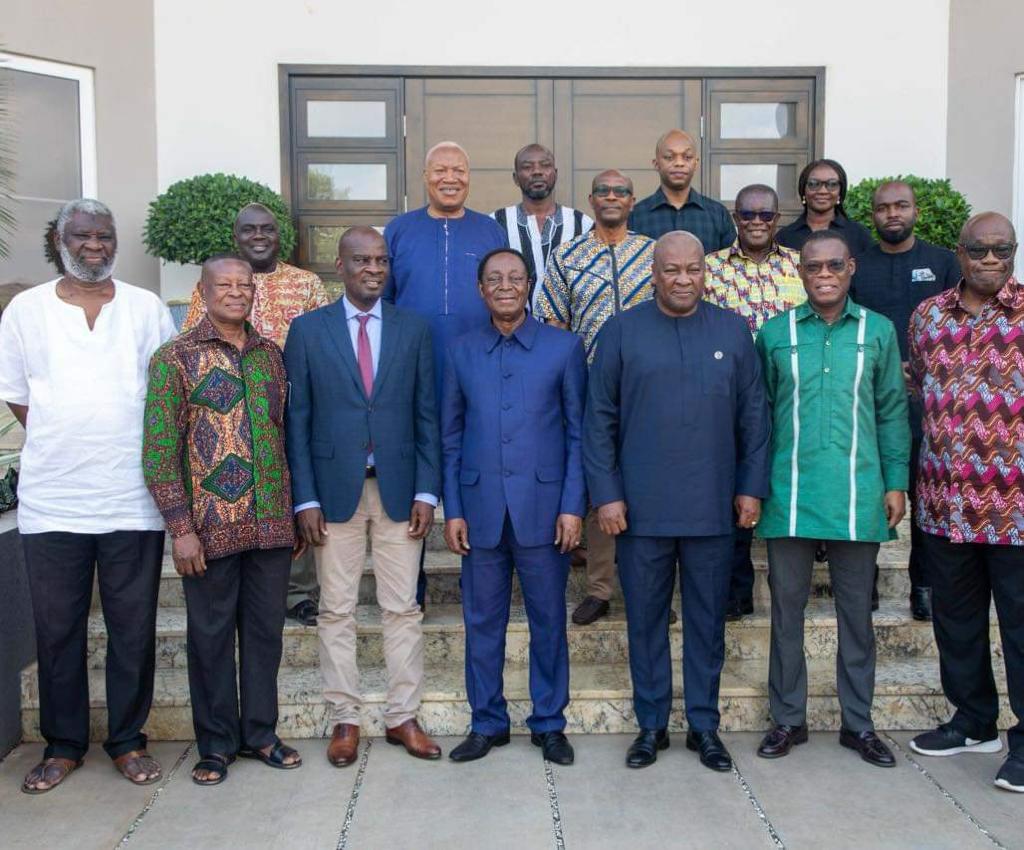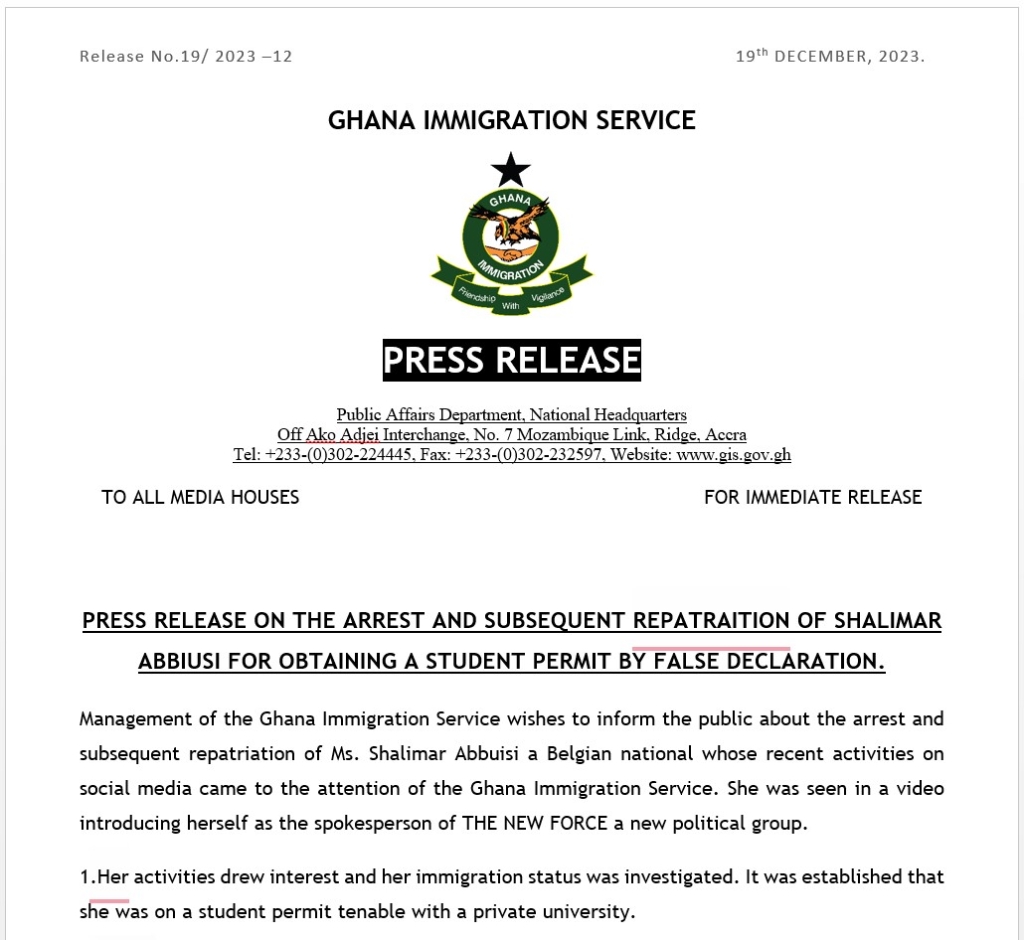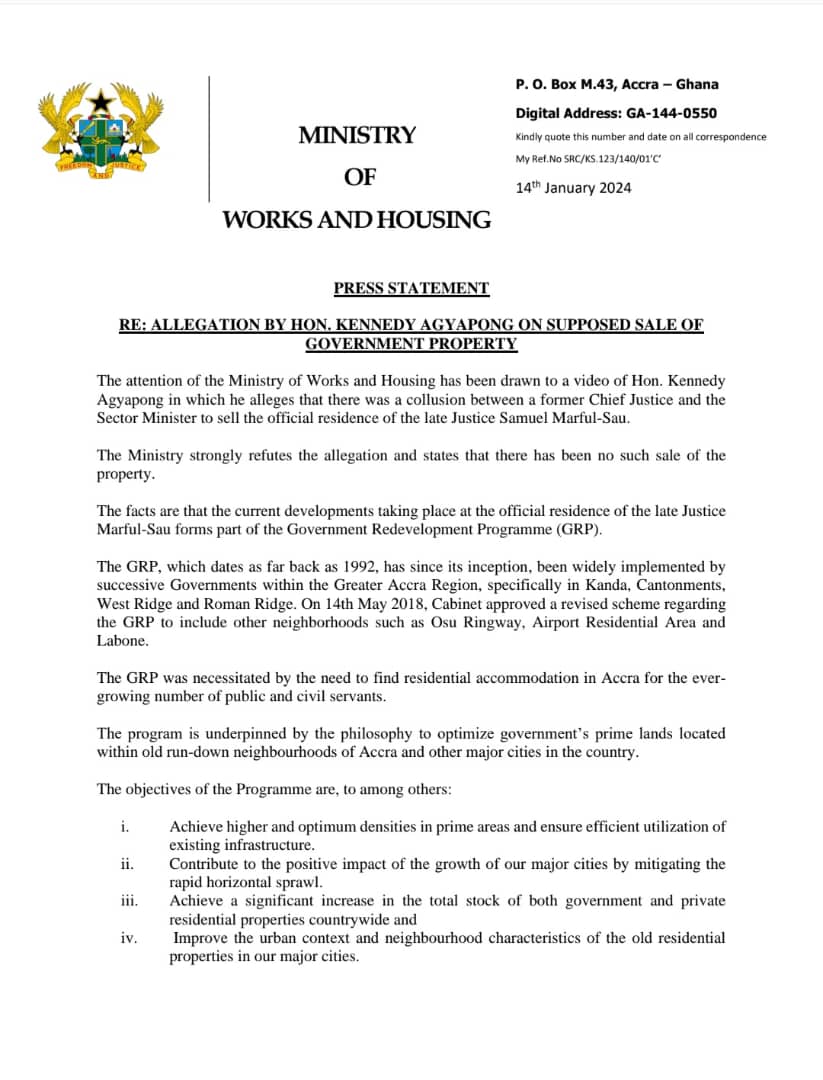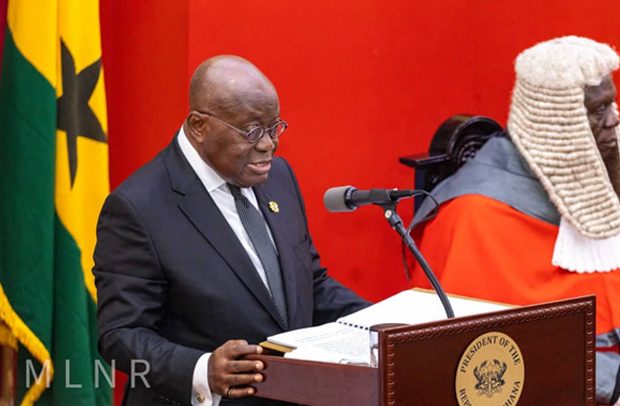
- seeks review of contract termination directive
- insists project added GH¢20bn to state revenue
- rejects OSP’s claims on procurement, legality
Strategic Mobilisation Ghana Limited (SML) says it has presented a detailed evidence dossier to the Presidency and the Attorney-General in response to President John Mahama’s directive to terminate all its contracts with the Ghana Revenue Authority (GRA) and the Ministry of Finance (MoF).
The company said the submission contains legal opinions, technical reports, financial reconciliations, and official correspondence from the GRA and other state agencies, which collectively demonstrate that its contracts were lawful, performance-based, and delivered measurable value to the state.
President Mahama, through a letter signed by the Secretary to the President, Dr. Callistus Mahama, directed the immediate termination of all SML-related contracts following the conclusion of an investigation by the Office of the Special Prosecutor (OSP). The OSP’s report alleged procurement breaches, questioned the necessity of SML’s services, and claimed that the agreements constituted contractual overreach.
In a press conference, SML described the decision as premature and unsupported by evidence, saying it remained confident that an objective review by the Presidency would confirm the legitimacy of its operations.
“Earlier, we delivered a comprehensive response to the President of the Republic of Ghana on His directive for the contract between MoF/GRA and SML to be terminated which hinged largely on the OSP’s report.
In the letter submitted to the Presidency and Attorney General (AG), we provided documentary evidence to each and every paragraph and elaborated on the accurate/true picture of the MoF/GRA and SML Contract.
We are confident that a review of the documents presented to the President and AG would help them appreciate matters and form a fair and independent opinion on the termination directive,” SML’s lawyer, Cephas Boyuo explained.
During a Q&A session with journalists after the briefing, SML’s legal representatives indicated that the government would be obliged to fully compensate the company if it proceeds with termination, since the contracts were validly executed and backed by performance-based deliverables verified by the GRA.
“The State cannot terminate lawfully executed contracts with impunity,” the company said, adding that any such decision would trigger compensation obligations in line with the Public Procurement Act and established contractual principles.
We have generated GH¢20 billion in verified revenues
SML said its downstream petroleum audit and monitoring system had generated approximately GH¢20 billion in verified revenue for the State since 2020. It explained that the initiative closed long-standing gaps in taxable petroleum volumes, which previously resulted in substantial revenue losses.
According to SML, data from the National Petroleum Authority (NPA) and the GRA show that prior to its deployment in May 2020, the difference between petroleum lifted and declared taxable volumes stood at about 3.2 billion litres over a 16-month period. Following the introduction of its monitoring systems, the gap narrowed to 260 million litres, largely due to its real-time tracking and reconciliation mechanisms.
The company said these results translated into over GH¢20.3 billion in additional petroleum tax revenue, calculated at an average tax rate of GH¢1.44 per litre. It added that taxable volumes increased from an average of 207.9 million litres per month before its deployment to 450.2 million litres within a year after its systems went live.
SML also stated that its entire operational infrastructure, including meters, servers, communication systems, and field installations, was financed entirely by the company at its own cost and risk. “The government made no capital contribution, provided no guarantee, and incurred no financial risk. Our compensation is strictly tied to verified results confirmed by the contracting authority,” SML said.
The company said its metering systems had been installed and calibrated at 25 petroleum depots nationwide, with 99.9 percent system uptime and continuous data visibility from import discharge to depot release. It added that all flow meters had been inspected and certified by the Ghana Standards Authority (GSA) as accurate and fit for purpose.
SML rejected the OSP’s claim that its reliance on waybill authentication was a sign of metering failure. “Waybills remain the legally recognised documents in petroleum taxation and were used because they carry evidentiary value. Our system integrates both electronic metering and authenticated waybill tracking for cross-verification,” it said.
The company further questioned the OSP’s claim that GH¢125 million was to be recovered from SML, insisting that “the records show otherwise.” According to SML, official reconciliations available at the GRA confirm that all payments were based on verified outputs and that, in fact, the State owes SML for outstanding validated work.
On the issue of parliamentary approval, SML said the OSP’s conclusion that its contract required legislative ratification under Section 33(1) of the Public Financial Management Act was “factually incorrect and legally untenable. The contract created no debt, loan guarantee, or contingent liability for the government. It is a performance-based service engagement, not a financial obligation,” SML said.
The company explained that the project was fully self-funded by SML and that payments were made only after results had been independently verified by the GRA’s internal audit and technical teams.
To support its position, SML cited similar public–private revenue assurance agreements that have operated under successive governments without parliamentary approval, including GCNet, West Blue Consulting, and Ghana Link (operators of ICUMS).
“The OSP’s position departs from consistent practice and, if applied retroactively, would affect nearly every government service contract of this kind,” SML noted.
SML said its contract was duly vetted by the Attorney-General’s Department and the Public Procurement Authority, both of which confirmed its compliance with existing laws. It said all operational and payment structures were subject to ongoing GRA supervision and reconciliation.
The company insisted that it welcomed legitimate review and oversight but urged that the national conversation be guided by verified facts and due process.
“We have provided every relevant document to the Presidency and the Attorney-General. We trust that the evidence will speak for itself and that fairness, transparency, and accuracy will prevail,” SML said.
The company reaffirmed its commitment to cooperation with state authorities but said it would continue to defend its reputation and the integrity of its work. “SML remains proud of the contribution it has made to Ghana’s revenue mobilisation. We will continue to uphold transparency, professionalism, and respect for the rule of law in all our engagements,” it stated.
The post SML presents evidence to Presidency appeared first on The Business & Financial Times.
Read Full Story






















Facebook
Twitter
Pinterest
Instagram
Google+
YouTube
LinkedIn
RSS